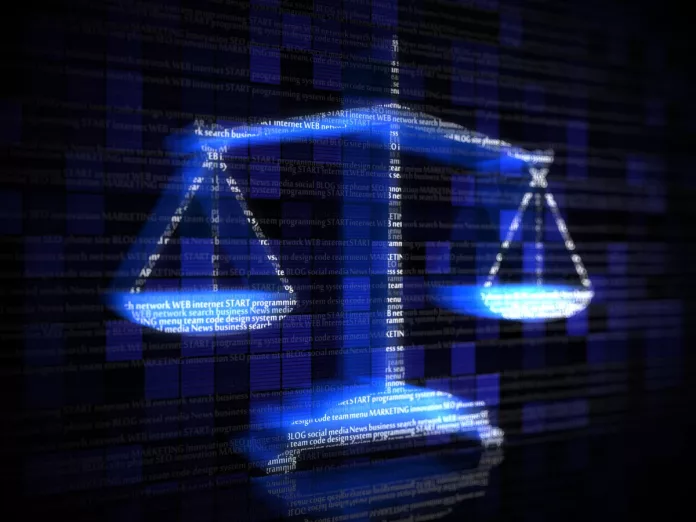When asked why they chose their degree, the average Law (LLB) student will proclaim their dedication to changing the world, and their supreme hatred towards STEM. But that couldn’t be further from the truth for Sara Kabiri, a LLB student studying at the Madrid campus. After she attended a STEM-focused high school, Law was an unexpected choice for her. Although she has dedicated herself to her degree, she is “fascinated by how the polar-opposite fields intersect.” Throughout her first year, she networked her way into the foreign field of legal tech; now as a second-year student, she strives to share her experience with other students by founding the Legal Tech Club.
Club Founders:



Law is a traditionally “paper and pencil” career that recently moved into the co-working sector. Professionals work long hours – filing documents, drafting contracts from scratch, networking, manually attaching relevant statutes; the list seems to go on for eternity. However, Sara noted that by implementing legal tech, “we can be lawyers who have fun, we won’t have to complete repetitive tasks.” Legal technology helps professionals improve their work-efficiency and quality, streamline daily processes, and enhance the delivery of legal services through AI-supported research and dispute resolution systems.
The traditional professional might recoil at the notion of AI incorporation. Won’t it make mistakes? There is no doubt. However, legal tech wasn’t introduced to leave lawyers unemployed. Ana Di Filippo, a second-year LLB transfer student from Amsterdam pursuing her second bachelor’s, explained, “legal tech is a tool… but a lot of skeptics see it as a replacement. [It’s] important to make that distinction – it’s about how you use the tool.”
Although legal tech is not perfect, it highlights mistakes and brings hard-to-find research to the forefront. Some law firms have embraced this future, and accommodated legal tech professionals to shape AI.
Legal tech can impact anyone connected to the legal profession, from customers to potential hires. The obvious benefit to clients is improved communication: lawyers can more easily update clients or offer flexible and secure online meetings. Embracing technology shows that a firm is innovative and forward thinking. This also extends to candidates’ choice between firms: forward-thinking firms offer a clearer work-life balance.
Why is it important to educate bachelor students on the topic early on? Ana understood after a scholarship event where top firms, including PwC and Peréz-Llorca, spoke about their legal tech experiences. Firms want candidates that know and actively participate in the “innovation era.” It not only shows their open-mindedness, but their ability to leverage legal tech to produce high-quality work.
New hires will need to understand legal tech’s capabilities to reframe what they offer, because AI can cover tedious tasks that are usually assigned to them. Ana noted, “If you know where technology is going, it becomes easier to understand what needs to be innovated. It brings in a new set of eyes.” Innovation could entail new forms of coworking, fresh approaches to issues, or the reconstruction of parts of the firm.
Sara arrived at IE with a mission to connect law and technology; in each class, she asked her professors how to do so at IE. Although most of them provided her with directions, some, she laughed, looked at her dubiously.
Then, she met Iga Kurowska, the head of Innovations and Legal Tech at Aktion, a law firm in Valencia. Professor Kurowska offered Sara an opening as an intern at the Legal Tech Academy she founded. Sara is now a second year intern at the Academy, tasked with research, marketing, and interview-based podcast creation. Soon, her episodes will feature legal tech experts from around the world. “I am excited to learn more, I’m just a fanatic who thought, ‘I wish we had something like this at IE’.”
And we do: IE connected with top law firms for the annual Lawtomation event. Sara lamented that unfortunately, she was unable to attend, as it was scheduled during her classes and the IE attendance policy does not excuse absences for their own events. Alternatively, she found an online course, “Legal Tech” as part of IE’s Lifelong Learning Executive Education program. However, the course is not tailored to bachelor students, and requires an additional tuition fee.
Law students receive their first opportunity in the legal tech field in the specialized third-year track: Tech & Digital Law covers data protection, cybersecurity, and patent law. Again, this track is not offered to all students. Sara and Ana stress the importance of disseminating at least introductory information to everyone through a new seminar or elective.
When Ana researched her thesis for her first bachelor degree in PPLE, she based it on a paper by Professor Antonio Aloisi. It discussed the legal and philosophical consequences of the transition to tech-based work and what she called the “4.0 Revolution.” She was blown away. After she graduated, it was turned into a book that coincides with many of the topics discussed in her second-year labor law course. Through their external research, IE professors have created a whole database that doesn’t reach bachelor students until later, if at all, simply because no such course exists.
Sara, Ana, and their colleagues want to demonstrate the prevalence legal tech should have at the bachelor level. The club intends to help students navigate the sector and discover new innovations through conferences and master classes. They plan to involve external legal tech users and IE professors, facilitate student inquiries and allow them to benefit from the developed network.
The Legal Tech Club still needs help from the student body to officially launch.They ask that people sign a Google Form demonstrating their interest to management.









